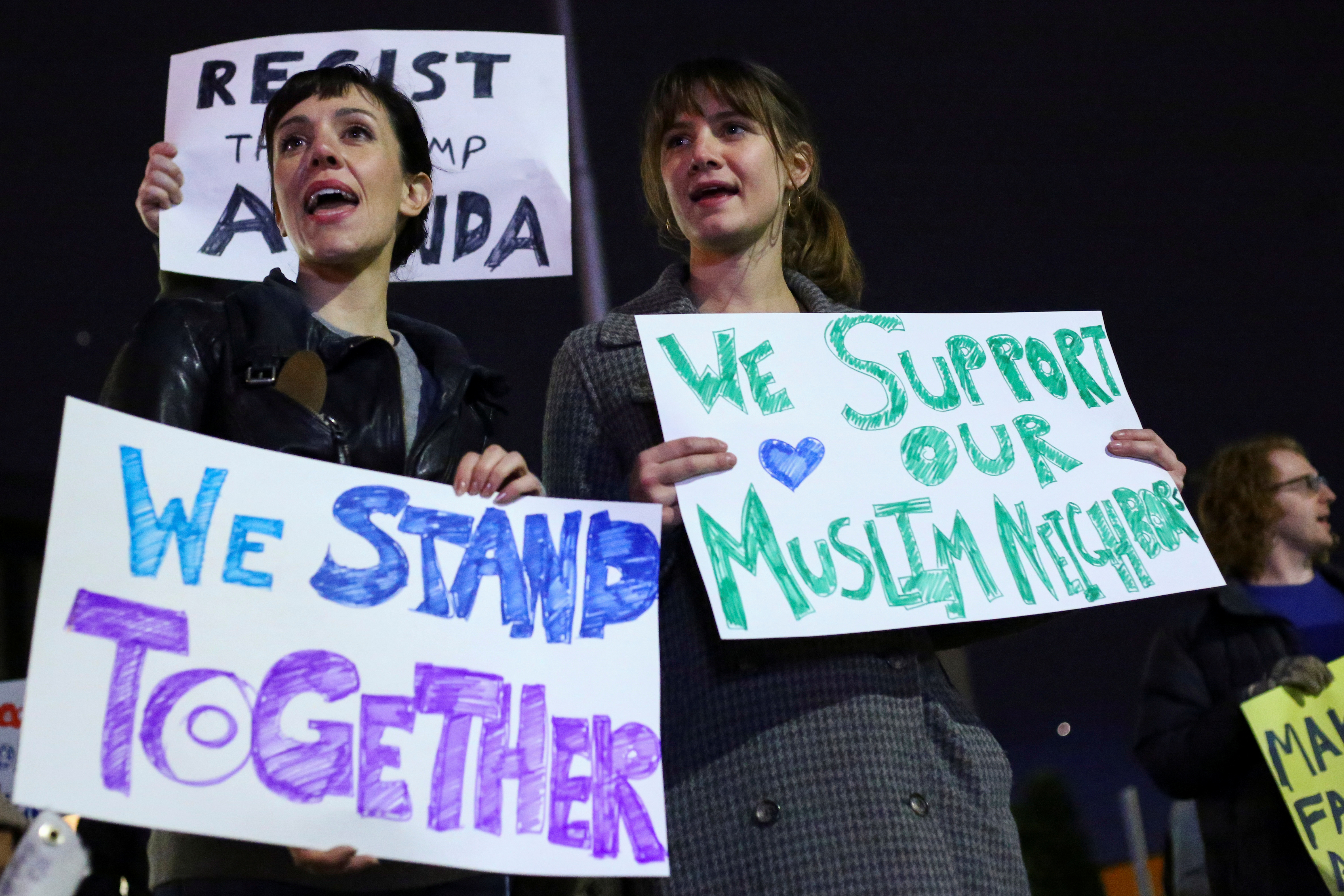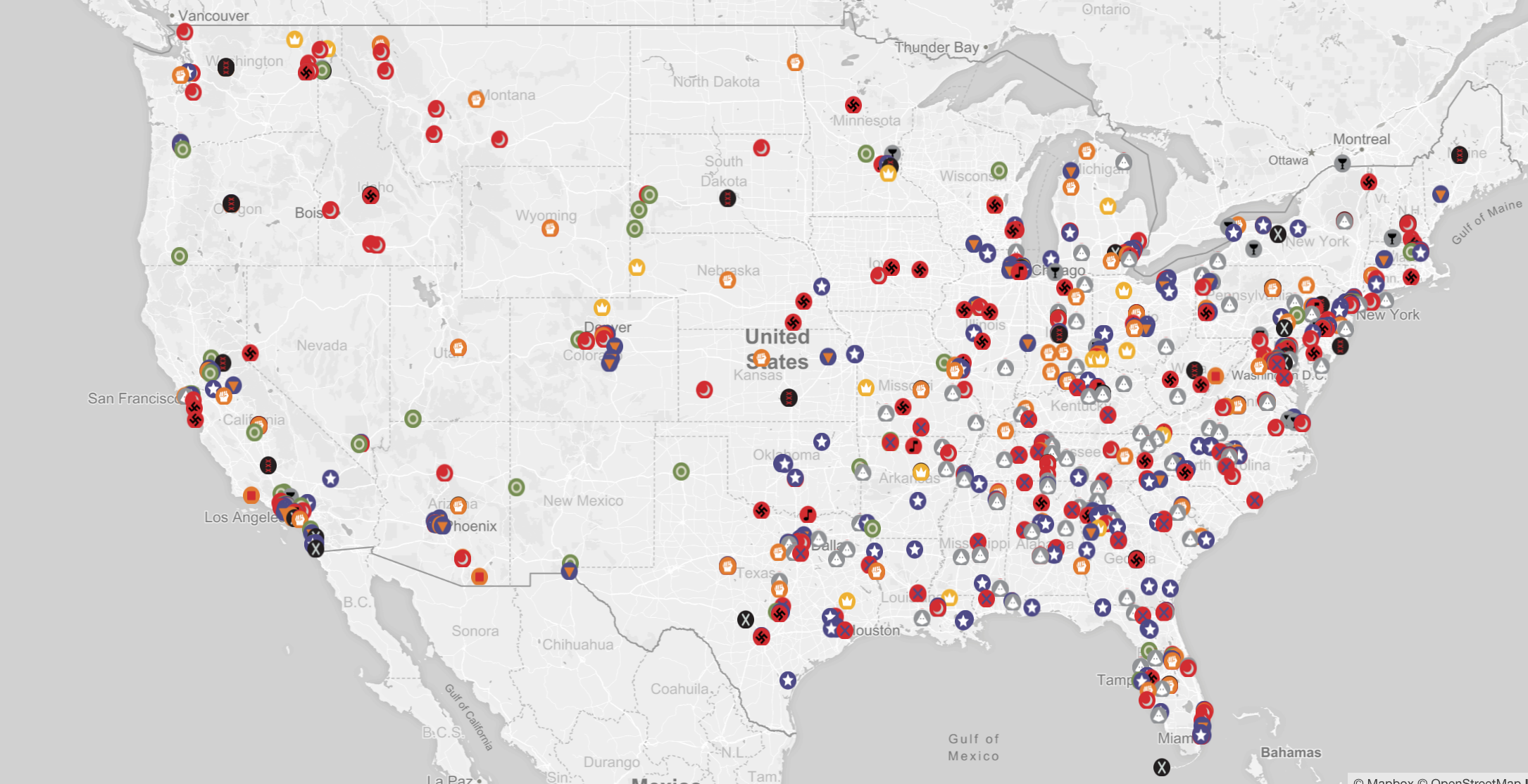
Photo: PBS
Direct confrontation and violence are exactly what many hate groups would like to see when they come into a community. Don't let it happen in your town. Anti-Muslim rallies in 27 cities across the country were organized by ACT for America, the largest anti-Muslim group in the country according to the Southern Poverty Law Center (SPLC). Reach out and let your Muslim neighbors know there are people in the community who care and will support them. And, don't get drawn into a confrontation at the site of a hate group march. Move your events somewhere else where all community members and their children can safely express solidarity.
Many communities have already experienced a neo-Nazi and Klan march or have had rallies by white supremacists. Here at Not In Our Town, we draw on years of experience from communities who have faced hate groups, successfully avoided violence and galvanized their towns to spread a broad based message resisting hate and supporting unity and inclusion. Here are some videos that can provide inspiration and ideas for effective responses.
A powerful example can be found in Olympia, WA, a city that experienced rallies and events held by neo-Nazi hate groups for over two decades. Residents of Olympia developed effective tools that can guide actions today. While fear and divisiveness go hand in hand with hate efforts, a community-wide response with a broad cross section of community members and students is the most effective way to stand up to hate groups, promote acceptance and inclusion, and assure vulnerable members of the community that they are not alone
Unity In the Community Members of Olympia share three ways to get organized.
1) Focus on building trust among all members of an anti-hate coalition
2) Be vigilant in gathering information on the specific hate groups
3) Gain support from many sectors of the community, including, civic leaders, schools, local law enforcement agencies, and faith communities
GET THE FACTS
When a hate group is coming to town, it is important to find out more. Who are they, what are they trying to do, and do they have a history of inciting violence. Often it is not hard to gather information. These groups widely publicize their goals and tactics.
The Southern Poverty Law Center tracks hate groups through a nationwide hate map and provides a base of information on many of the groups In the case of the June 10 March, the organizers are part of a group called ACT for America described as “far and away the largest grassroots anti-Muslim group in America that states that a practicing Muslim cannot be a loyal citizen of the United States. This rally is also being supported by other hate and Neo-Nazi groups.
SUPPORT TARGETS OF HATE
When Anti- Muslim marchers come to town, surround Muslim Centers with signs of love and support. One of the most vital actions a community can take is to reach out to people who are targets of hate groups to let them know they are not alone. Make a point of prioritizing advocacy to particularly offer support to people directly targeted by the hate groups. Find ways to offer tangible support. Reach out and let your Muslim neighbors know there are people in the community who care and will support them. But don't get drawn into a confrontation at the site of the hate groups march. Move your events somewhere else where all community members and their children can safely express solidarity.
FIND ALLIES
Broad based solidarity is powerful. In every community, there are allies who are also concerned about the rise in hate and who want to see their community as a place where everyone feels safe. Reach out to your neighbors, to groups on social media who are willing to show up for each other in person, to different religious groups, business people, students, law enforcement, your mayor and city council, school leaders and others. Bring the allies together in an event away from the hate group rally for a Unity event, and urge the news media to cover your story as urgently as the hate groups are covered.
Seek out the folks that share your concerns about hate group activity and work up a plan to expand. Create a broad-based coalition that will draw the attention of people from all sectors of the community and will be covered by the media.
DEVELOP AN INCLUSIVE COMMUNITY-BASED RESPONSE OR LOCAL EVENT
Working together with your allies, come to an agreement on a planned response. Find ways to assure participants that the goal is not to confront the hate group, but to offer a strong showing of support. If there is concern that a counter-protest is being set up that could become violent, differentiate yourselves from that effort. That can be done by taking a public stance in another part of town with adequate security in place. Be creative. Communities have come up with a wide range of unifying responses that give a clear message of inclusion.
-
Rallies
-
Speakers Series
-
Social Media Campaign
-
Celebrations with Local Faith Groups
SAFETY PLANNING
Safety is an important consideration given that many hate groups seek to start or provoke violence. Work with local law enforcement in advance to assure that your event is safe for all members of the community to participate. Recognize that after recent violent hate incidents, many persons of color, immigrants, and members of Muslim, Sikh, and Jewish communities feel like targets and need to be assured that they and their families will be kept safe.
FOLLOW UP
In addition to debriefing any activities, seek to reflect on ways to continue the work. This work of creating inclusion and countering hate does not change a community with one event. Transformation is most effective when efforts are sustained. Join the Not In Our Town Network and learn from each other.
